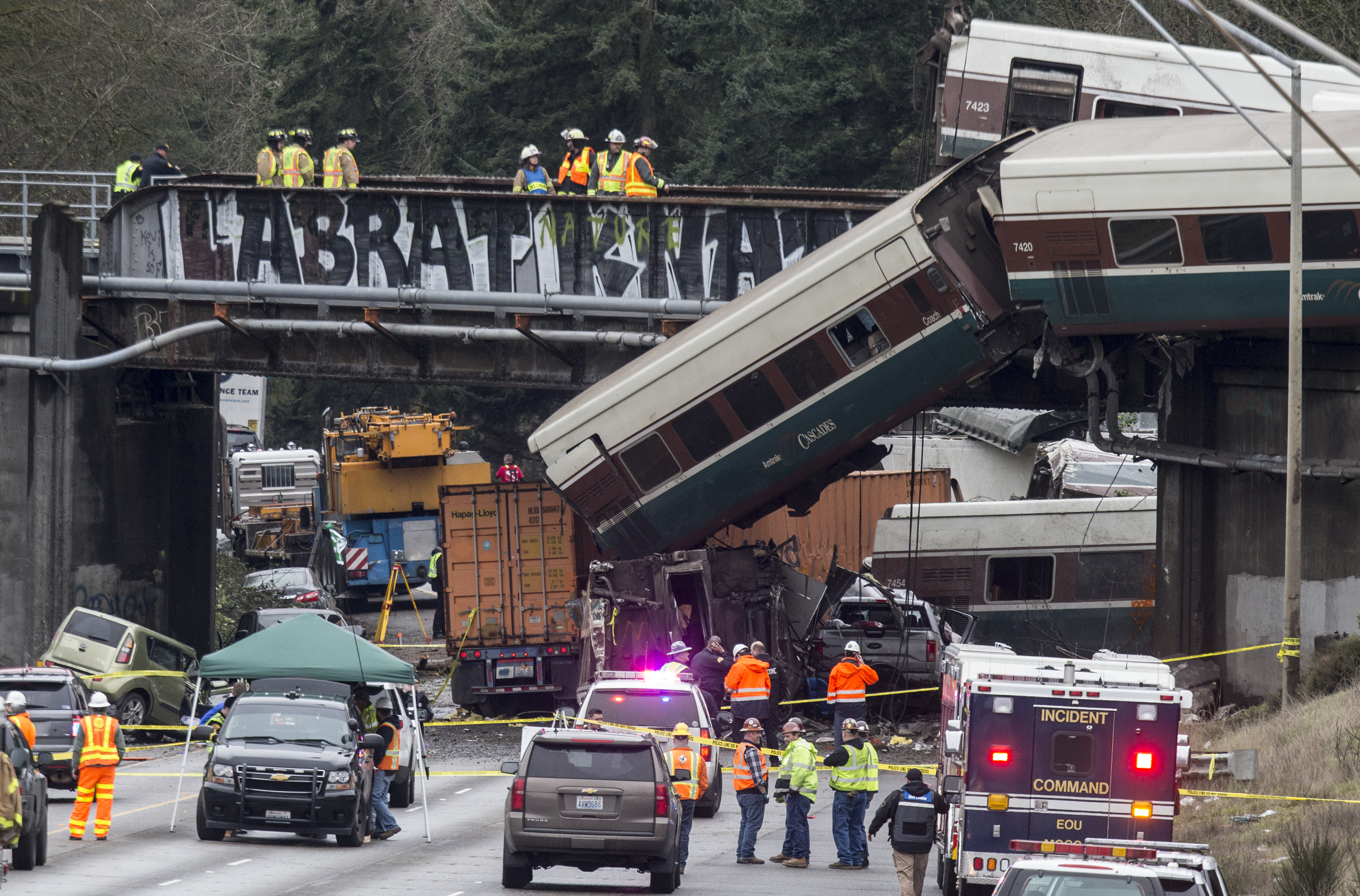Lawmakers aim to thwart Amtrak forced-arbitration policy
New rule prevents lawsuits over injuries or deaths of passengers in rail accidents

Lawmakers are in the initial stages of determining whether they can prevent Amtrak from implementing a forced arbitration policy that would bar passengers from suing if they’re hurt or killed in crashes.
Rep. Daniel Lipinski, D-Ill., chairman of the House Transportation and Infrastructure Subcommittee on Railroads, Pipelines and Hazardous Materials, said Wednesday that he was trying to determine how best to stop the government-supported passenger rail service from imposing the forced arbitration policy on customers. Amtrak began imposing the policy in January.
[Amtrak IG details Union Station security deficiencies]
“Apparently there is not anything to bar forced arbitration for an Amtrak passenger, so that is something that we’re now starting to look at legislatively,” Lipinski said, adding that House Transportation and Infrastructure Chairman Peter A. DeFazio, D-Ore., has also expressed a keen interest in the issue. He noted that airlines are barred from imposing such agreements on their customers.
Amtrak imposed the policy after reaching multi-million dollar court settlements in recent years, including a $256 million award to passengers and survivors of a 2015 derailment outside of Philadelphia. Three people died in a 2017 Amtrak accident near DuPont, Wash.
Testy exchange
Lawmakers’ questions about the policy spurred an angry reaction from Amtrak’s top executive during the Wednesday hearing.
Rep. Stephen F. Lynch, D-Mass. grilled Amtrak President and CEO Richard Anderson sharply about the policy, questioning whether such forced arbitration clauses created a disincentive for rigorous safety precautions “because it limits the rights of individual injured passengers or workers.”
“To ride on Amtrak, they’ve got to accept mandatory arbitration,” Lynch said. “They don’t have a choice. You can’t renegotiate what’s on the back of the ticket.”
Anderson argued that railroad workers are also subject to binding arbitration under federal law.
But Lynch said the comparisons weren’t appropriate. “These are passengers,” he said.
The two spoke over each other, with Anderson at one point asking, “are you going to let me finish?” and Lynch replying, “I’m not sure.” Anderson pushed the microphone away, checking his watch and phone in reply.
In sparring with lawmakers, Anderson takes a risk: Congressional appropriators, for example, are among Amtrak’s biggest advocates, fighting against deep cuts to the service repeatedly proposed in Trump administration budgets.
Lawmakers are also in the process of writing the next surface transportation bill, which creates policy for Amtrak. On Wednesday, Lipinski hinted that any legislation surrounding the forced arbitration policy might be addressed through that bill.
Others on the panel expressed concern that Amtrak had made sweeping cuts to its workforce. In some cases, they argued, employees had been replaced with low-wage workers who did not receive benefits.
Cost-neutral
DeFazio said that in an attempt to become “cost-neutral,” the company eliminated nearly 500 jobs at a Riverside, Calif., call center, eliminated agents at 15 stations across the country, and, last week announced plans to cut another 89 clerk jobs, all union positions.
“I don’t subscribe to this notion that Amtrak needs to operate cost-neutral,” DeFazio said, saying China and Germany both make heavy investments in their rail systems.
After the hearing, Lipinski wondered whether Amtrak is “trying to balance the books on the back of the employees.”
“Amtrak clearly has decided that the way to prosperity is to have its workers pay for it,” he said during the hearing, adding “you do not get more riders or more revenue with a worse product.”
Republicans on the panel also criticized the workforce cuts. Rep. Brian Fitzpatrick, R-Pa., sparred with Anderson over the need for call centers, with Fitzpatrick arguing that customer service agents were needed. Fitzpatrick represents a region with a call center.
Anderson argued that fewer call centers were needed as more people buy tickets digitally.
“Americans are going to a digital world with self-service,” he said. “We can ignore that but it will be at our peril.”





